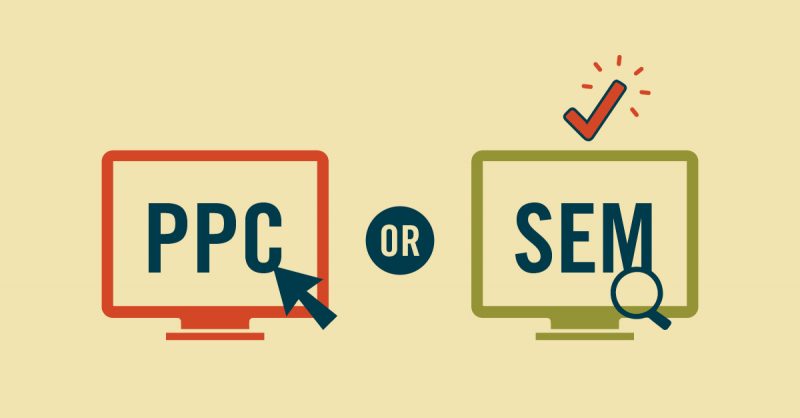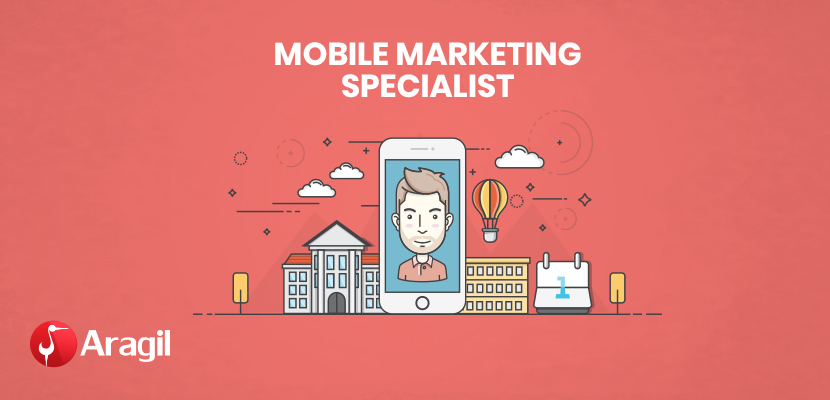Career Choices After Digital Marketing

Their are many career choices after digital marketing. You can pivot into various career paths based on your interests, skills, and aspirations. If you choose your career choices after Digital Marketing is one of the most promising careers with the emergence of the thriving digital age, where online is the new offline. Digital Marketing offers some of the high-paying jobs and careers for both creative and technical roles. As per Glassdoor, the average base pay of a Digital Marketing Manager is INR 398K per annum in India.
Digital Marketing has established an incremental role in the business world in present times. That’s why a career choices in digital marketing has emerged amongst the choicest ones. Because more and more students from diverse streams are choosing this specialization for its popularity in the world of the Internet.
| Digital Marketing Manager Salary | Salaray per annum |
|---|---|
| Entry-Level | INR 312,131 |
| Early Career | INR 437,214 |
| Experienced | INR 1,112,607 |
Career Choices in Digital Marketing: Top Job Profiles
- Digital Marketing Manager
- Pay Per Click and SEM Analyst
- Social Media Manager
- SEO Content Writer
- Business Analytics Specialist
- Search Engine Optimization Specialist
- Web Designer
- Professional Blogger
- Mobile Marketing Specialist
- Email Marketer
- Search Expert
Let’s elaborate upon some of these high-demand careers in digital marketing
Digital Marketing Manager
Career choices after digital Marketing then you’ll become a Digital Marketing Manager, will be responsible for developing, implementing, and overseeing digital marketing strategies to promote products or services, enhance brand awareness, and drive customer engagement. Your role involves managing a team of digital marketers and collaborating with other departments to achieve marketing goals. A Digital Marketing Manager plans digital marketing campaigns across varied media, such as social media, SEO/SEM, advertising, e-mail campaigns, etc. They also monitor and strategize all the digital marketing campaigns and optimize them continuously to ensure highest revenues and reach. If you choose your career choices after digital marketing you can also become a Digital Marketing Manager.

Some Key Responsibilities of a Digital Marketing Manager
1) Team Leadership: They Lead and mentor a team of digital marketing specialists. And they provide complete guidance, feedback, and support to achieve individual and team goals.
2) Campaign Management: They Plan and execute digital marketing campaigns across various channels. Which includes SEO, PPC, social media, email, and content marketing, ensuring consistency and effectiveness.
3) Content Strategy: They Develop and execute content marketing strategies, including content creation, distribution, and promotion, to engage audiences and support overall marketing objectives.
4) Media Management: They Manage social media channels, develop social media strategies, and create engaging content to build brand presence, increase followers, and drive user engagement.
Pay Per Click and SEM Analyst
Career choices after digital marketing then, As a Pay-Per-Click (PPC) or Search Engine Marketing (SEM) Analyst, you’ll specialize in managing and optimizing paid search advertising campaigns to drive targeted traffic, conversions, and ROI. Your role is to focus on leveraging platforms like Google Ads, Bing Ads, and other PPC advertising channels to reach potential customers efficiently. SEM or Pay per Click Analyst mainly assesses the website traffic to integrate it with campaign tracking as well as all elements of online marketing, search analytics, SEO, amongst others. Your role is crucial in driving targeted traffic and conversions through paid search advertising channels, contributing to overall business growth and success. If you choose your career choices after digital marketing you can also become a Pay Per Click and SEM Analyst.

Some Key Responsibilities of a Pay Per Click and SEM Analyst
Campaign Planning and Strategy: They Develop PPC/SEM strategies aligned with business objectives, target audience, and budget constraints. And they Conduct keyword research, competitor analysis, and audience segmentation to inform campaign planning.
Ad Creation and Optimization: They Create compelling ad copy and visuals that resonate with target audiences. And Optimize ad campaigns by testing different ad variations, targeting options, and bidding strategies to maximize click-through rates (CTR). And conversions while minimizing cost-per-click (CPC).
Keyword Management: They Conduct thorough keyword research to identify high-value keywords with relevant search volume and conversion potential. Manage keyword lists, bids, and match types to ensure optimal campaign performance and budget allocation.
Quality Score Optimization: They Improve ad quality scores by optimizing ad relevance, landing page experience, and expected click-through rates. And they Implement best practices to increase Quality Score, which can lead to higher ad placements and lower CPC.
Landing Page Optimization: Collaborate with web developers and designers to optimize landing pages for PPC campaigns. Ensure landing pages are relevant, user-friendly, and optimized for conversions to maximize campaign performance.
Career choices after digital marketing then you’ll become A Social Media Manager handles the social media channels of a company or a brand and curate the requisite social media strategies for content, marketing and building the best online presence for the brand. A Social Media Manager, develop, implement, and manage social media strategies to build brand awareness, engage audiences, and drive business objectives. Your role is dynamic and multifaceted, which require strong communication skills, creativity, strategic thinking, and a deep understanding of social media platforms and trends. If you choose your career choices after digital marketing you can also become a social media manager.

Some Key Responsibilities of a Social Media Manager
Strategy Development: They Develop social media strategies that aligned with overall marketing and business goals. And they Identify target audiences, key messaging, content themes, and platforms to focus on.
Content Creation and Curation: They Create high-quality, engaging content for social media platforms. Which includes text, images, videos, and interactive content. Curate relevant content from third-party sources to supplement your own content strategy.
Content Calendar Management: They Develop and maintain a content calendar to plan and schedule social media posts in advance. Ensure content is timely, relevant, and aligned with brand voice and messaging.
Community Engagement: Monitor social media channels for brand mentions, comments, and messages. Engage with followers, respond to inquiries, address customer concerns, and foster positive relationships with the community.
Career Choices after Digital Marketing: Content Marketing Specialists
A Content Marketing Specialist, revolves around creating, managing, and distributing valuable and relevant content to attract, engage, and retain a target audience. They make eye-catching content that engage audience. Content Marketing Specialist curates the brand’s story in a unique and appealing manner to capture the audience and handles all the major digital media channels for content broadcast, be it blogs, social media, advertisements, website content and more. They develop and deliver compelling content experiences, that will help to drive brand awareness, engagement, lead generation, and customer retention, ultimately contributing to the organization’s marketing objectives and overall business success. If you choose your career choices after digital marketing you can also become a content marketing specialists.

Some Key Responsibilities of a Content Marketing Specialists
Content Strategy Development: They Develop a content strategy that aligned with the organization’s goals, target audience preferences, and brand identity. And then they Identify content themes, formats, and channels to maximize reach and engagement.
Content Creation: They Produce high-quality, original content across various formats such as blog posts, articles, e-books, whitepapers, case studies, infographics, videos, podcasts, and social media posts. And they Ensure content is well-researched, informative, engaging, and aligned with brand messaging and objectives.
SEO Optimization: They Conduct keyword research to identify relevant topics and optimize content for search engines. Incorporate target keywords strategically into titles, headings, meta descriptions, and body content to improve organic visibility and ranking.
Content Planning and Editorial Calendar Management: They Create content calendars to plan and schedule content across digital platforms. And then Coordinate with cross-functional teams to ensure content is aligned with marketing campaigns, events, and product launches.
Content Distribution and Promotion: They Promote content across various channels, including social media, email newsletters, industry forums, and content syndication platforms. Utilize paid promotion tactics and influencer partnerships to amplify reach and engagement
Career Choices after Digital Marketing: SEO Content Writer
An SEO Content Writer carries out the research for the trending and industry-related topics and curates all the online content like blogs, social media copy, website content, adverts and more along with integrating SEO insights, keywords, etc. A SEO Content Writer, creates and wrote content that not only engages readers but also ranks well in search engine results pages (SERPs). They create content that not only resonates with your audience but also performs well in search engine rankings, driving organic traffic and maximizing the impact of your content marketing efforts. They Optimize content elements such as title tags, meta descriptions, headers, and image alt text for relevant keywords. If you choose your career choices after digital marketing you can also become a SEO Content Writer.

Some Key Responsibilities of a SEO Content Writer
Keyword Research: Conduct thorough keyword research to identify relevant search terms and phrases with sufficient search volume and low competition. Use keyword research tools to discover opportunities and incorporate targeted keywords naturally into your content.
Content Creation: Write high-quality, informative, and engaging content that addresses the needs and interests of your target audience. Craft compelling headlines, introductions, and body copy while seamlessly integrating targeted keywords to improve search visibility.
SEO Optimization: Optimize content elements such as title tags, meta descriptions, headers, and image alt text for relevant keywords. Follow on-page SEO best practices to improve crawlability, indexability, and relevance for search engines.
Content Structure and Formatting: Structure your content in a user-friendly format with clear headings, subheadings, bullet points, and short paragraphs. Use formatting elements such as bold, italics, and lists to enhance readability and user experience.
Content Promotion: Share your content across various channels, including social media, email newsletters, and industry forums, to increase visibility and drive traffic.
Career Choices after Digital Marketing: Mobile Marketing Specialist
A Mobile Marketing Specialist, involves in developing and implementing strategies to reach and engage target audiences through mobile channels such as smartphones, tablets, and other handheld devices. They leveraging mobile channels and technologies. And they drive user engagement, brand awareness, and conversions among mobile audiences. contributing to overall business growth and success in the increasingly mobile-centric digital landscape. They Develop and execute social media marketing strategies tailored for mobile audiences. If you choose your career choices after digital marketing you can also become a Mobile marketing specialist.

Some Key Responsibilities of a Mobile Marketing specialist
Mobile Marketing Strategy: They Develop comprehensive mobile marketing strategies that aligned with overall marketing and business goals. And Identify target audiences, mobile usage trends, and opportunities for engagement across mobile channels.
App Marketing: They Promote mobile applications through various channels, including app store optimization (ASO), paid advertising, social media, email marketing, and influencer partnerships. Drive app installs, user engagement, and retention through targeted campaigns and optimization tactics.
Mobile Website Optimization: They Optimize mobile websites for speed, usability, and conversion rate optimization (CRO). Ensure responsive design, intuitive navigation, and mobile-friendly content to enhance user experience and drive conversions on mobile devices.
SMS Marketing: Implement SMS marketing campaigns to deliver targeted messages, promotions, and alerts to subscribers’ mobile phones. Adhere to regulatory guidelines and best practices for consent, frequency, and content relevance.
Mobile Advertising: They Plan, execute, and optimize mobile advertising campaigns across various platforms, including mobile display ads, in-app ads, and mobile search ads. Target relevant audiences based on demographics, interests, and behavioral data to maximize ROI.
Career Choices After Digital Marketing: Salary
There are many high-salaried careers and job profiles in Digital Marketing. Here is the salary overview for top careers if you choose career choices in Digital Marketing:
| Career/Job Profile | Average Salary in India |
| Digital Marketing Manager | 4 Lakhs to 18 Lakhs p.a. |
| SEO Specialist | 2 Lakhs to 3 Lakhs p.a. |
| Social Media Manager | 3 Lakhs to 4 Lakhs p.a |
| Content Marketing Specialist | 2 Lakhs to 4 Lakhs p.a. |
| Pay Per Click or SEM Analyst | 2.5 Lakhs to 6 Lakhs p.a. |
| Content Writer | 2.5 Lakhs to 5 Lakhs p.a. |



